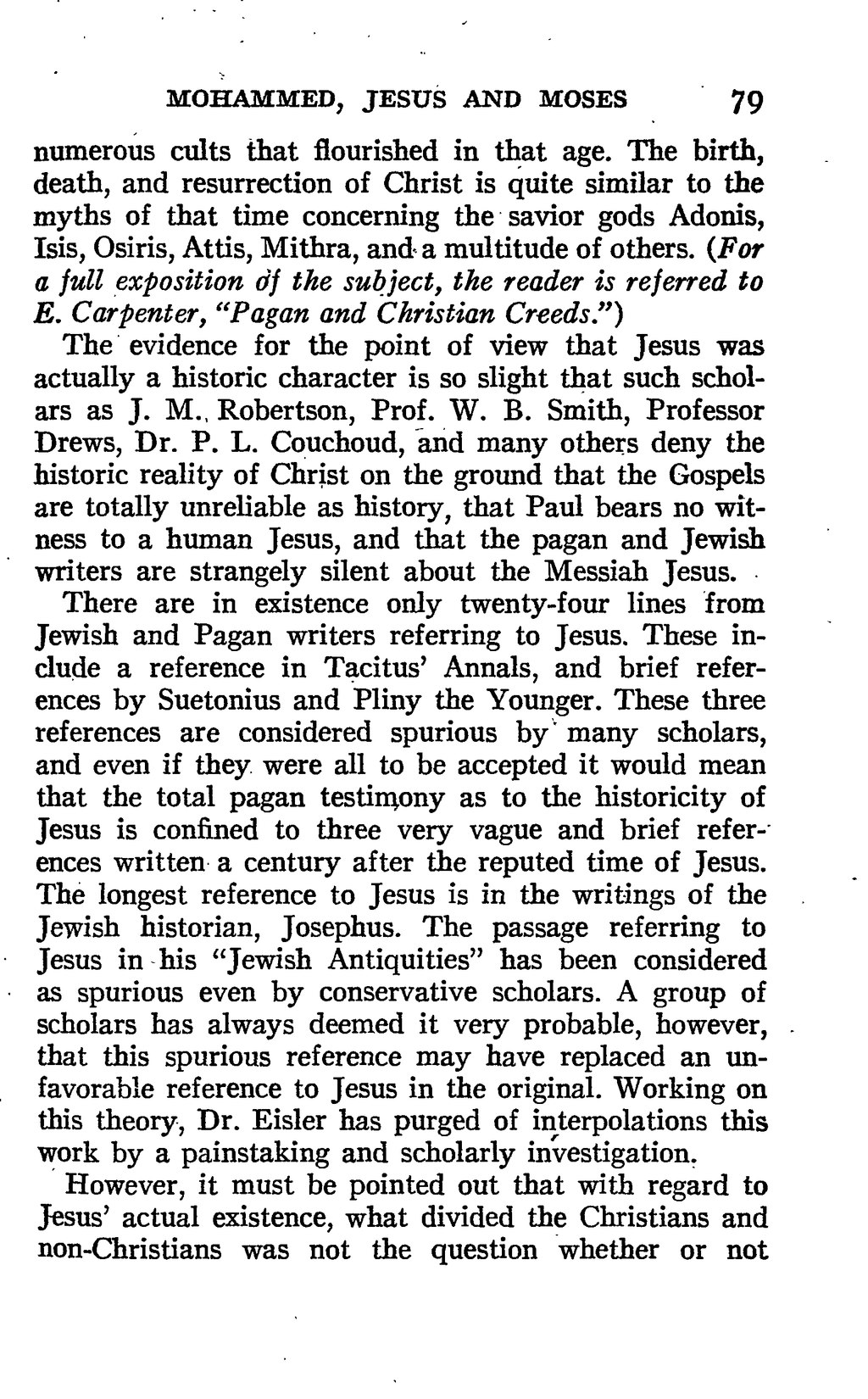numerous cults that flourished in that age. The birth, death, and resurrection of Christ is quite similar to the myths of that time concerning the savior gods Adonis, Isis, Osiris, Attis, Mithra, and a multitude of others. (For a full exposition of the subject, the reader is referred to E. Carpenter, "Pagan and Christian Creeds")
The evidence for the point of view that Jesus was actually a historic character is so slight that such scholars as J. M., Robertson, Prof. W. B. Smith, Professor Drews, Dr. P. L. Couchoud, and many others deny the historic reality of Christ on the ground that the Gospels are totally unreliable as history, that Paul bears no witness to a human Jesus, and that the pagan and Jewish writers are strangely silent about the Messiah Jesus.
There are in existence only twenty-four lines from Jewish and Pagan writers referring to Jesus. These include a reference in Tacitus' Annals, and brief references by Suetonius and Pliny the Younger. These three references are considered spurious by' many scholars, and even if they were all to be accepted it would mean that the total pagan testimony as to the historicity of Jesus is confined to three very vague and brief references written a century after the reputed time of Jesus. The longest reference to Jesus is in the writings of the Jewish historian, Josephus. The passage referring to Jesus in his "Jewish Antiquities" has been considered as spurious even by conservative scholars. A group of scholars has always deemed it very probable, however, that this spurious reference may have replaced an unfavorable reference to Jesus in the original. Working on this theory, Dr. Eisler has purged of interpolations this work by a painstaking and scholarly investigation.
However, it must be pointed out that with regard to Jesus' actual existence, what divided the Christians and non-Christians was not the question whether or not
